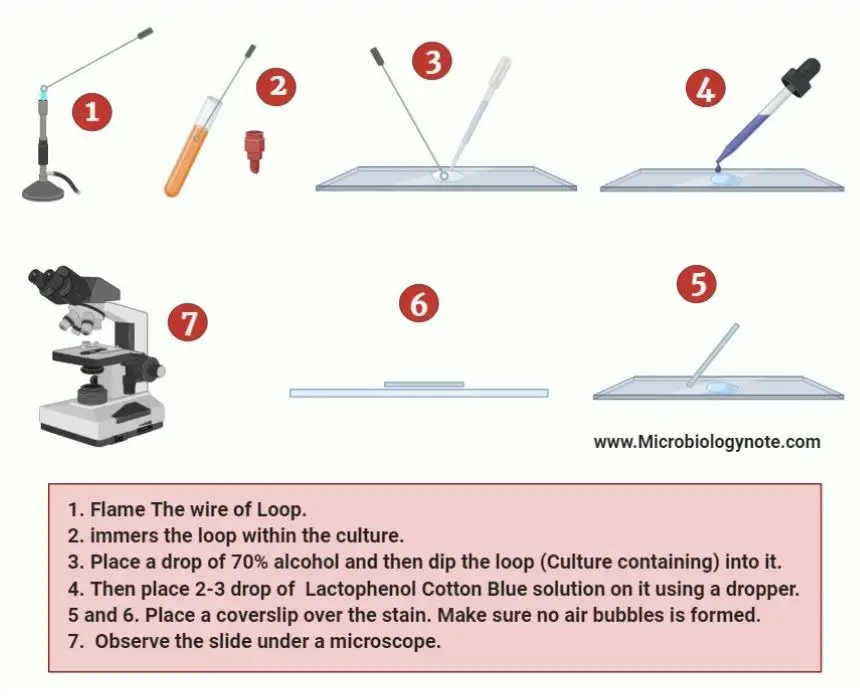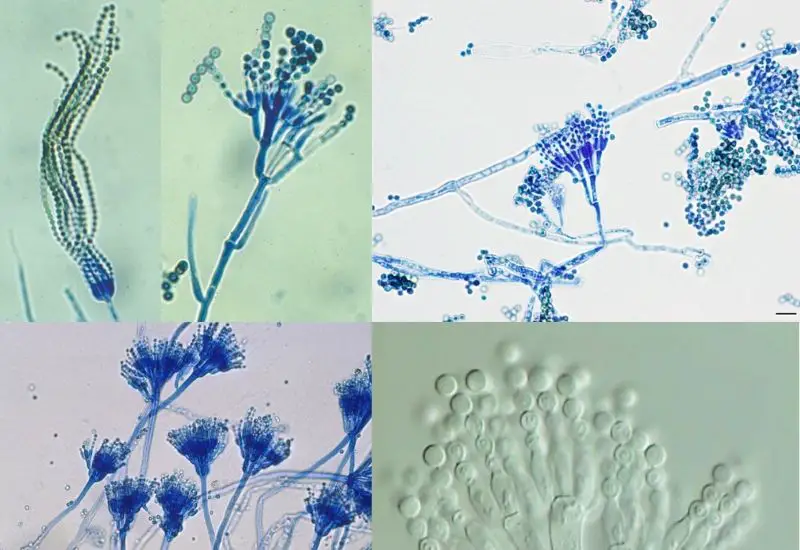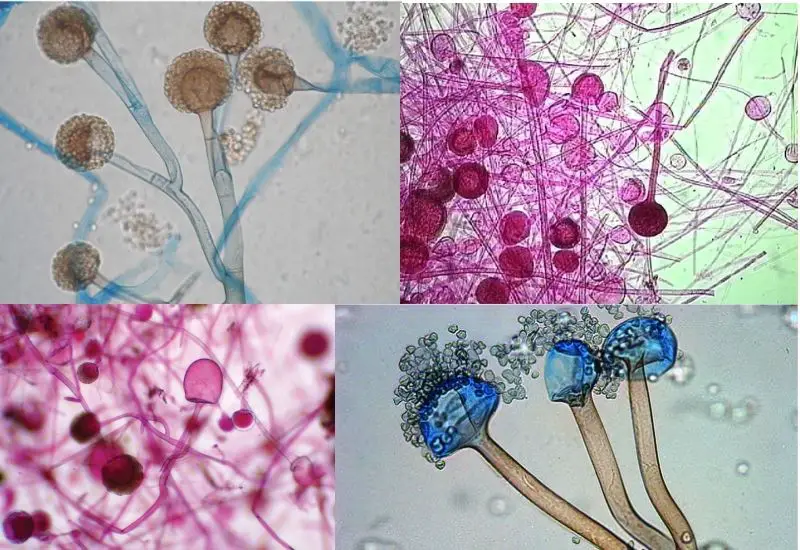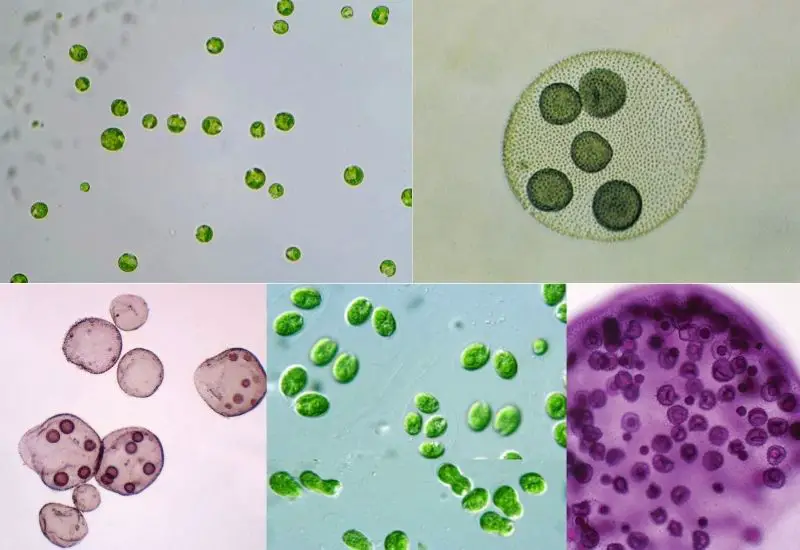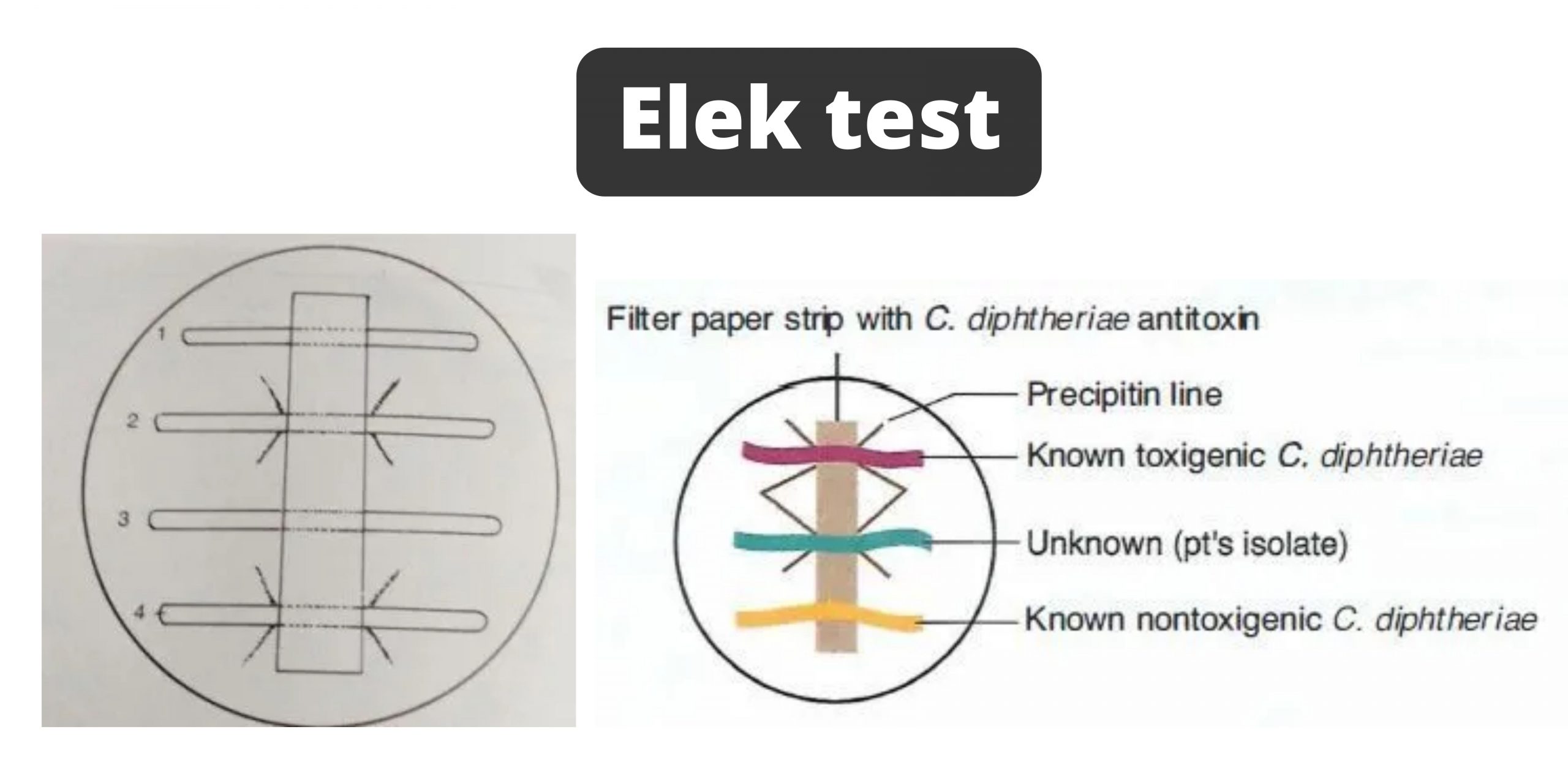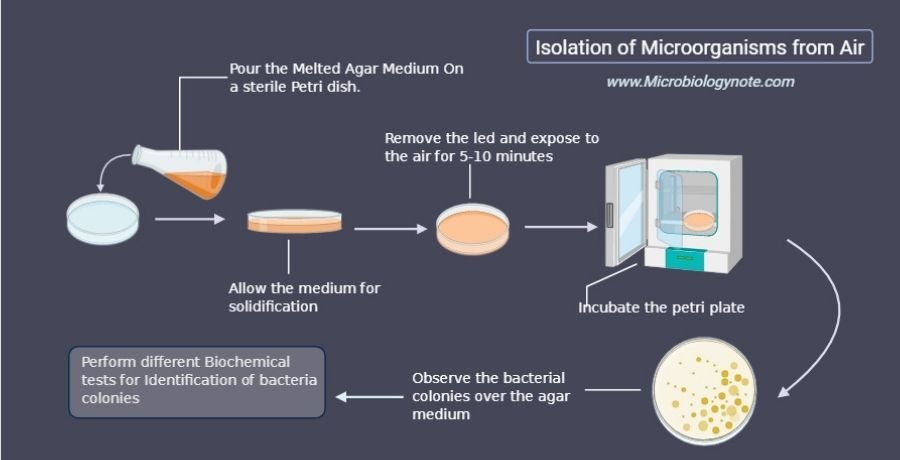Study of Aspergillus by using Temporary Mount Technique
The Lactophenol Cotton Blue solution stains the chitinous cell wall of the fungal cell, which makes them different from the surrounding environments and can easily distinguishable. LCB is made of three main components such as Phenol, Lactic acid, and Cotton blue.
